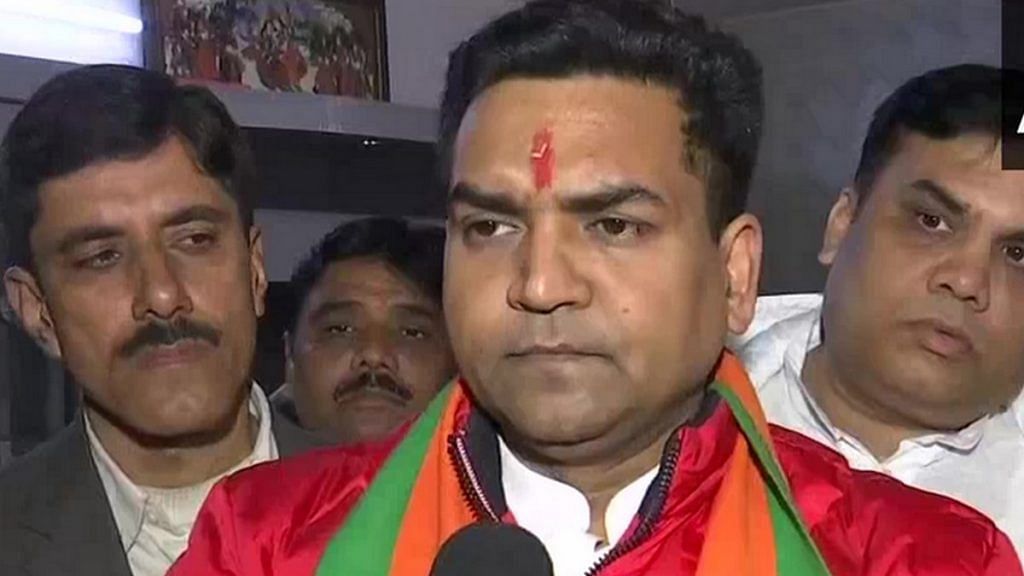New Delhi: BJP leader Kapil Mishra’s controversial speech earlier this year threatening vigilante action against anti-CAA protesters seems to have become a yardstick to judge provocative content on social media.
Facebook CEO Mark Zuckerberg reportedly quoted Mishra’s threat — although he did not name the BJP leader — as he sought to outline clear social media incitement during a video interaction with his employees Tuesday.
“And there have been cases in India, for example, where someone said, ‘Hey, if the police don’t take care of this, our supporters will get in there and clear the streets’,” Zuckerberg said.
“That is kind of encouraging supporters to go do that in a more direct way, and we took that down. So we have a precedent for that.”
The quote has been accessed through a leaked audio of the interaction, which was held amid a churn at Facebook over what is seen as the social media giant’s failure to flag or take down controversial posts made by US President Donald Trump with respect to the ongoing #BlackLivesMatter protests.
Zuckerberg’s quote appeared to be a reference to a speech made by Mishra that is believed to be one of the primary triggers of the Northeast Delhi riots, which killed over 40 people.
During US President Donald Trump’s visit to India (24-25 February), Mishra had addressed supporters in Northeast Delhi while a protest against the Citizenship Amendment Act (CAA) was underway at the Jaffrabad Metro station.
At the rally, he gave a “three-day” ultimatum to the Delhi Police to get the roads cleared of anti-CAA protesters.
In a video he shared on social media, he was heard saying, “We will maintain peace until (US President) Donald Trump is in India. After that, we refuse to listen to even the police if the roads are not cleared…. we will be forced to hit the streets,” he is heard saying in the video.
He then issued a call through microblogging site Twitter, urging people to gather and “prevent another Shaheen Bagh” protest from taking place in Jaffrabad.
“A three day ultimatum to the police — to clear the roads and after that please do not try to convince us, we would not even listen to you,” he said in the tweet, which was subsequently taken down by Twitter.
Also Read: 20 Hindus named in fresh Delhi riots charge sheets for killing 2 Muslim brothers
Churn in Facebook
Zuckerberg’s meeting Tuesday with 25,000 Facebook employees was meant to discuss the social media giant’s handling of Trump’s Facebook posts, which have been criticised as glorifying violence. This includes a post where Trump said “when the looting starts, the shooting starts”, which referred to complaints of violence during protests against the killing of George Floyd.
The 46-year-old father, an African-American, died after a policeman knelt on his neck and stayed in that position despite Floyd’s complaints of breathlessness. Floyd, whom police had apprehended for alleged forgery, was in handcuffs at the time.
While Twitter had put a warning label on Trump’s post, Facebook left it as is, reportedly leading to a divide in the social media company.
Explaining Facebook’s action, Zurckerberg said, “We basically concluded after the research and after everything I’ve read and all the different folks that I’ve talked to, that that reference is clearly to aggressive policing — maybe excessive policing — but has no history of being read as a dog whistle for vigilante supporters to take justice into their own hands.”
The reference to Mishra’s comments were his bid to convince employees that Facebook does act against clear incitement.
Also Read: ‘Hate speech continues on social media’: Ex-RSS ideologue moves HC against Facebook, Twitter
